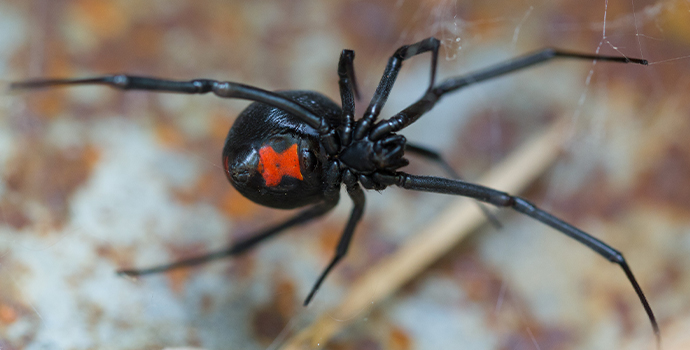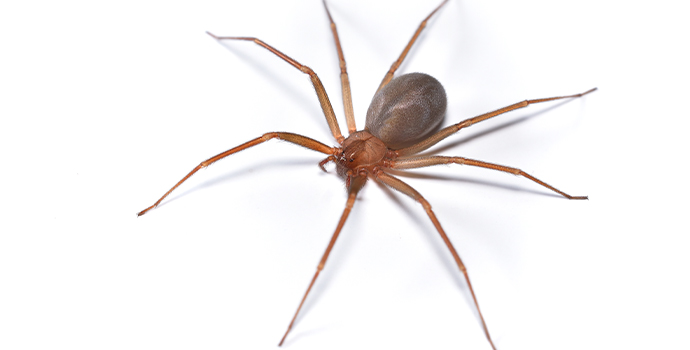- Home
- Types of Poisons
- Bites & Stings
- Venomous Spiders
Venomous Spiders
Kansas is home to hundreds of kinds of spiders, of all different sizes and colors, and in almost every type of habitat. Spiders are an important part of our ecosystem and eat more insects than birds and bats combined! However, there are 2 species of venomous spiders in Kansas that could produce serious signs or symptoms if bitten: the black widow and the brown recluse.
Call the 24-Hour Poison Help Line for Additional Support:
Treatment of Spider Bites
- Wash the area with soap and water.
- Apply a cold washcloth or ice pack wrapped in cloth to the area.
- Take an over-the-counter pain reliever.
- If the bite is on your arm or leg, elevate it to prevent swelling.
- Call the Poison Helpline, 1-800-222-1222. They will ask for descriptors of the specific spider if it was witnessed. Sometimes, an updated tetanus booster may be recommended.
Prevent Spider Bites
Both the black widow and the brown recluse spiders are nonaggressive, and only bite when they are startled or surprised. To reduce your risk of being bitten:
- Wear protective clothing such as gloves, a long-sleeved shirt and long pants tucked into socks when working outdoors.
- Applying insect repellent containing DEET to skin and clothing can provide extra protection.
- Clear any yard debris to prevent spiders from making their homes nearby.
- Shake out clothing, blankets and shoes before using them – especially if they have been unused for quite some time.
- Make sure your home is sealed to prevent spiders from entering. Caulk cracks and crevices on the outside of the house.
- Keep the house clean and free of clutter. Vacuum under furniture and clear any spider webs.

